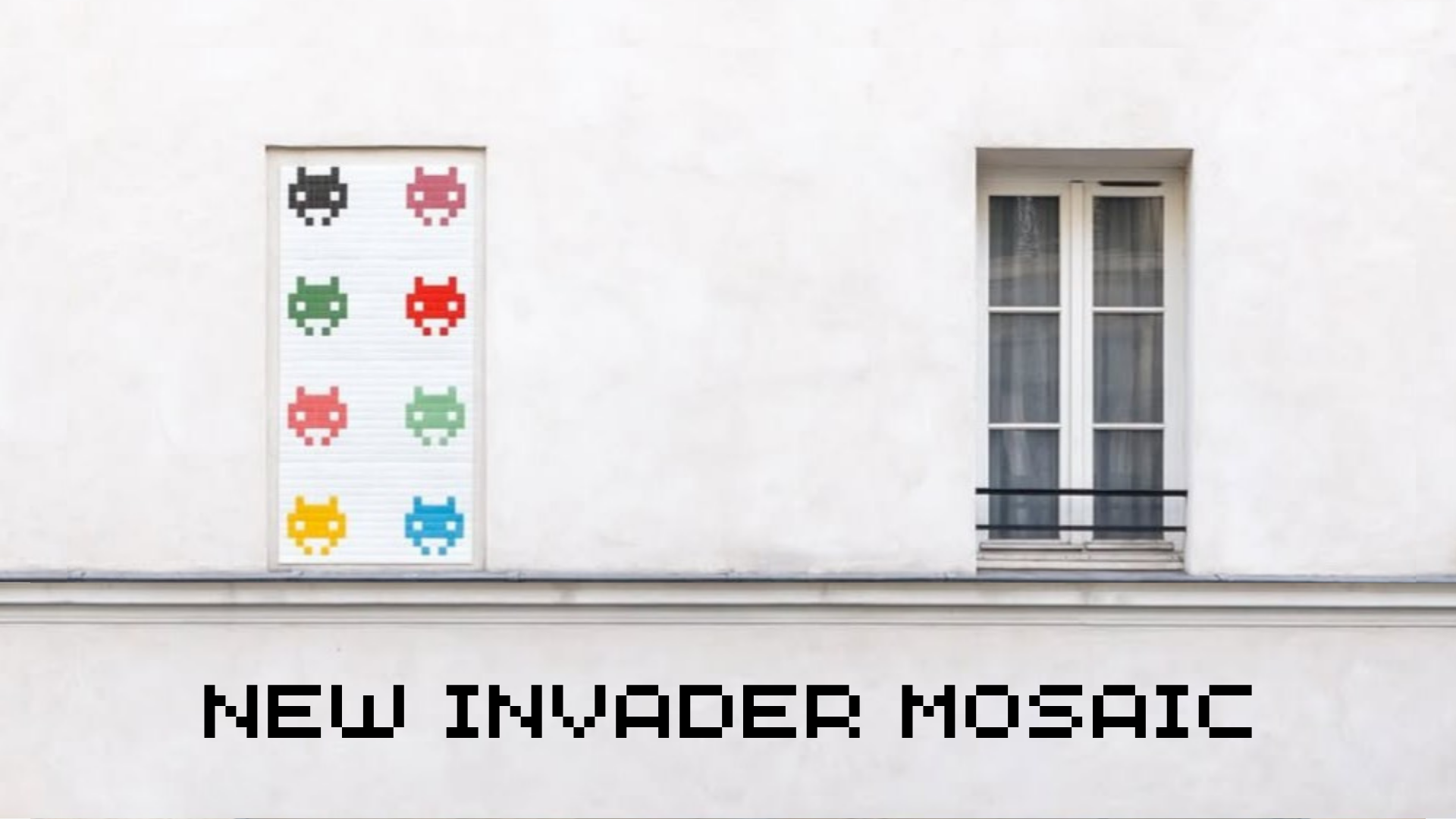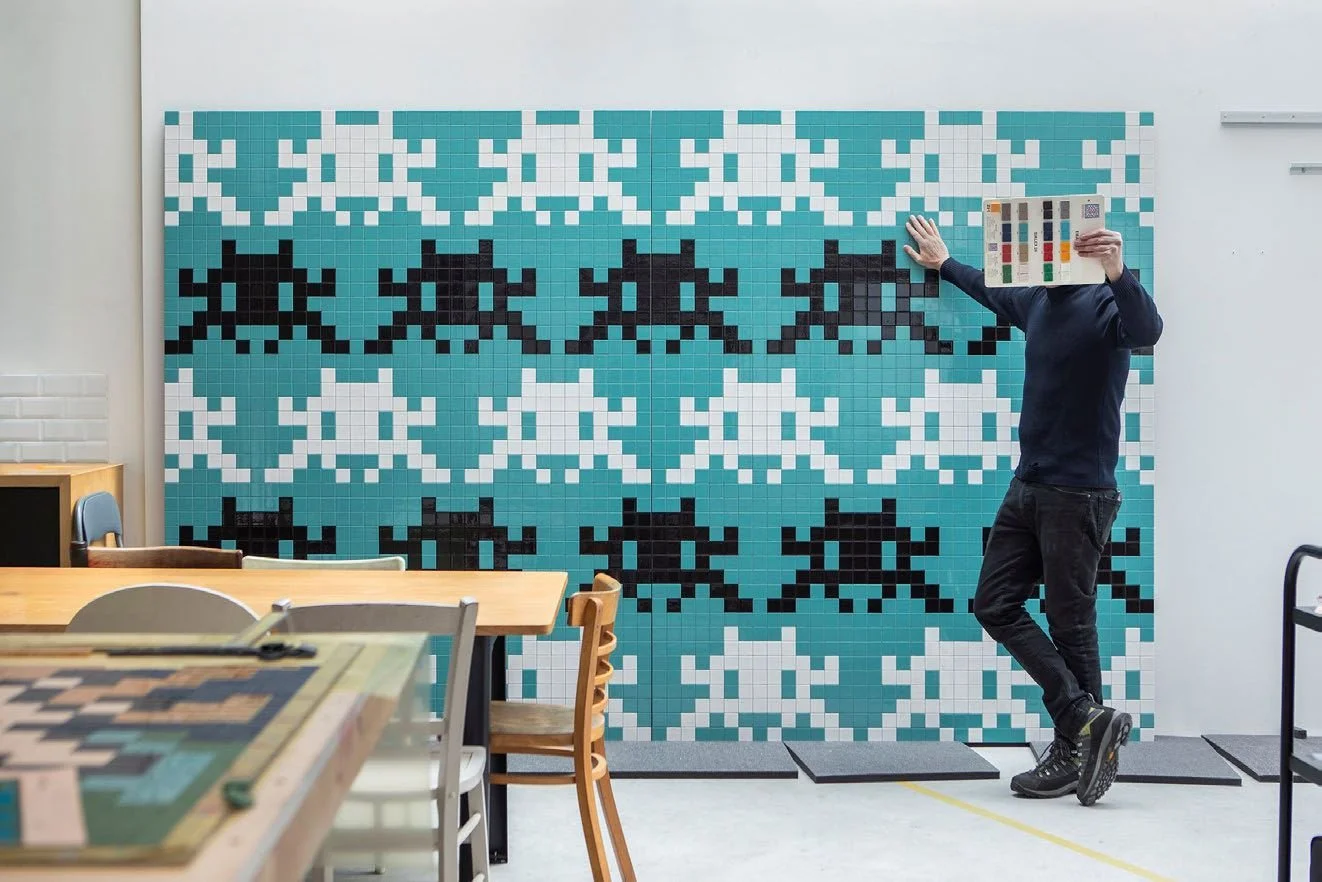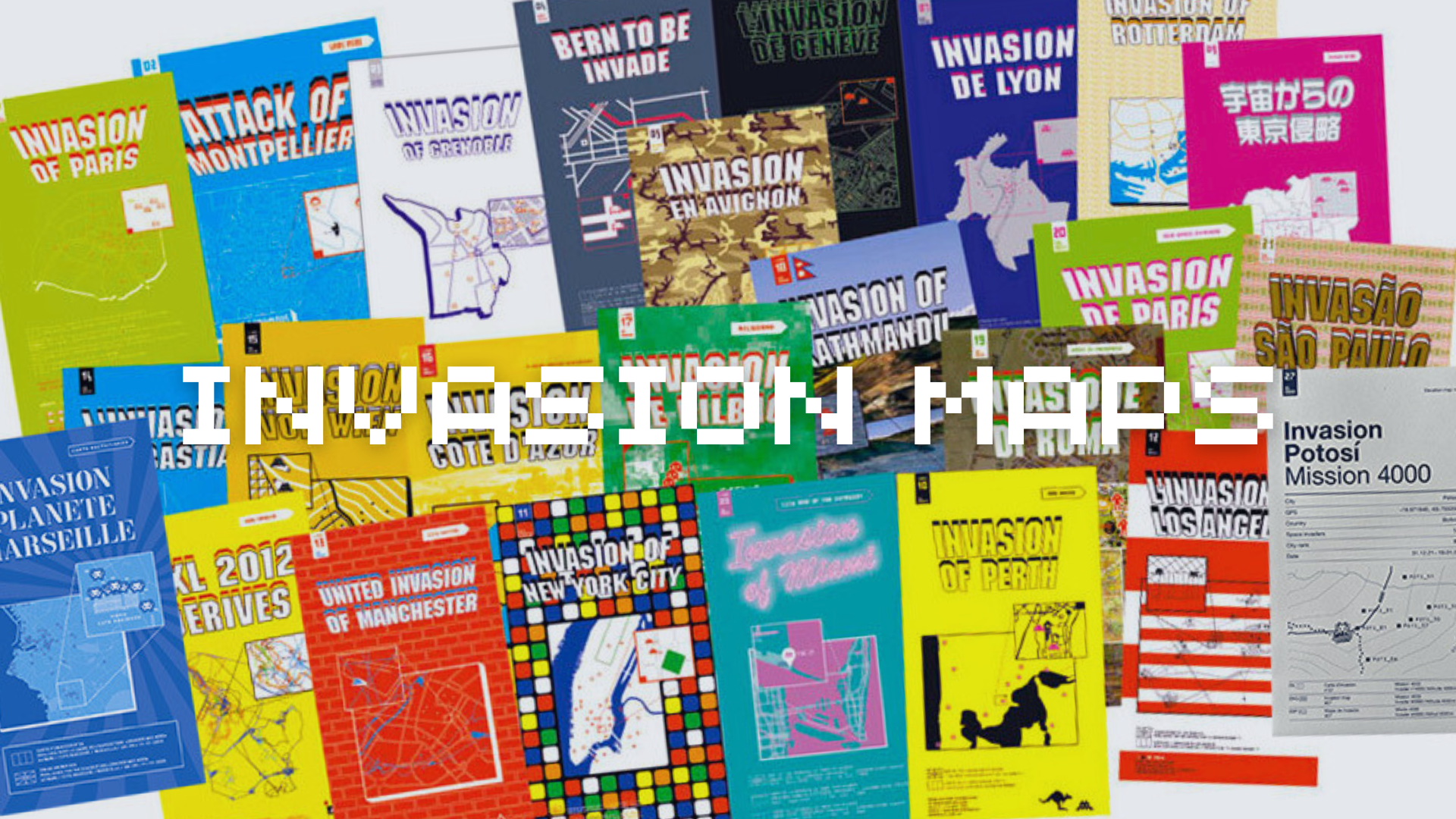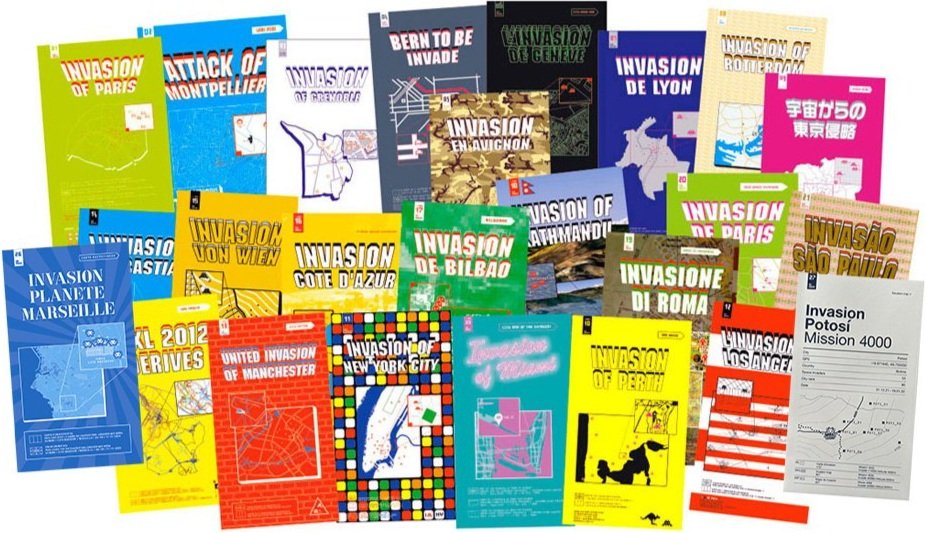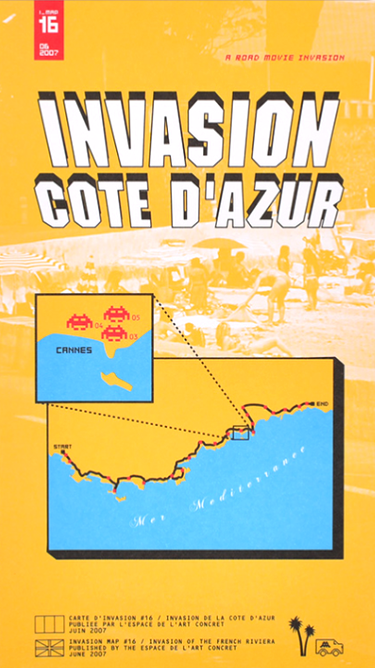Invasion Maps: A Guide to Invader's Comprehensive Maps
read more
Invader is a well-known French artist dedicated to his art of pixelated mosaics. His book displayed the blend of visual artistry and data documentation of his street art. It may not necessarily impact the literary world, but it has attracted numerous fans to own a part of his journey instead of simply an art piece. In this post, we explore specifically the Invasion Maps books.
Invasion Maps
As you would expect, the Invasion Maps are sets of prints with maps of popular cities on them. Each Invasion Map is an exercise in graphic style and tells the story of the invasion of a city in its own way. Currently, there are 28 maps for different cities, with one exception being Paris, having three invasion maps.
However, not every city invaded has a map specific for it, only 25 cities out of 85 have the privilege of an Invasion Map. The maps may differ in color and design, but the location of every Invader’s mosaic installations in the Space Invaders Project is placed on the streets on the city map. However, due to the sheer scale of certain regions, it may be hard to accurately put the location of the mosaic on the map if it is in a small alleyway or a path. Either way, you would not know the height of the artwork because it can’t be shown in a 2-dimensional plane; it may be on the rooftop or beside your feet, but you would never know unless you actually visit the place yourself.
The Concept
Due to the Space Invaders project, Invader has been placing intricate mosaics inspired by Space Invaders worldwide. A defining visual style of his is the small ceramic square tiles adhered to the city walls. These tiles seemingly depict the 8-bit graphic seen in classic arcade games. In addition, the placement of the Invader’s original creatures had to be extensively scouted prior to the Invasion to find ideal locations that represented the local culture. He may not have to visit the city beforehand, but he has to conduct thorough research.
Invader attempts to leave 20 to 50 mosaics in each place he invades and occasionally returns to complete more waves of invasion. With such, Invader creates a complex grading system that considers the placement of each mosaic and assigns a score, ranging from 10 to 100. This makes the installation project into a game, allowing the artist to rate his invasions according to their level of success.
The concept of Invasion Maps was born with the increasing number of mosaics installed. As it is hard to keep track of and locate mosaics that are in such a big area, the maps come in very handy. It will never fail you like a digital copy from issues like running out of battery or losing connection. Having the real thing in your hands is more trustworthy. The invasion score for each print in the map collection is given, with a total of all the mosaics added up.
In 1999, the first Invasion Map was launched, the “Invasion of Paris”. Later, the series was renamed to “Invader de Paris” with two versions launched in 2011 and 2024 respectively, with the 2024 one being the newest Invasion Map ever released. The second edition (2011) featured 1000 pieces installed in Paris, and the third edition (2024) featured 1500. Each Invasion Map is numbered in the top left-hand corner. However, the first two Invasion Maps have 99 on them, representing their date of release, in 1999.
first Invasion Map published
second edition of Invasion Maps in Paris
Detailed analysis on the design
Each Invasion Map is designed uniquely, using bold colors for the cover. However, there are a few exceptional cases that have patterns on the cover, including the Invasion of New York City, the United Invasion of Manchester, and the Invasion en Avignon.
The Invasion of Kathmandu is the only Invasion Map with a 3D photo on the front cover, and Invasione di Roma is the only Invasion Map with a map that is not originally hand-drawn for this project, but rather a public city map.
Fonts-wise, the Invasion of Miami, Invasion Planete Marseille, and the Invasion Potosi Mission 4000 have fonts differing from the other Invasion Maps.
Apart from English and French, some Invasion Maps exist in the local language of the city invaded. It includes Japanese in the 宇宙からの 東京侵略, Italian in Invasione di Roma, German in Invasion von Wien and Occitan in Invasion Cote D’Azur.
The New Mosaics of Ravenna is a special Invasion Map, as it looks nowhere close to one. It has a unique style of pixelated icons and characters on the cover with fonts with three-dimensionality.
List of All the Invasion Maps in Order:
Invasion of Paris
Attack of Montpellier
Invasion of Grenoble
Bern to be Invade
Invasion en Avignon
L’Invasion de Geneve
Invasion de Lyon
Invasion of Rotterdam
宇宙からの 東京侵略
Invasion of Perth
Invasion of New York City
L’Invasion de Los Angeles
United Invasion of Manchester
L’Invasion de Bastia
Invasion Von Wien
Invasion Cote D’Azur
Invasion de Bilbao
Invasion of Kathmandu
Invasione di Roma
Invasion de Paris
Invasão de São Paulo
BXL 2012 Derives
Invasion of Miami
New Mosaics of Ravenna
Invasion Map of Djerba Island
Invasion Planete Marseille
Invasion Potosi Mission 4000
Invasion de Paris v3.0
The Invasion Map series adds to the extensive history of Invader's work, perfectly capturing its whimsical and theatrical elements. What do you think about it, comment down below your thoughts.
All rights reserved
~
We do not own any copyrights to the photos used
~
All rights reserved ~ We do not own any copyrights to the photos used ~





